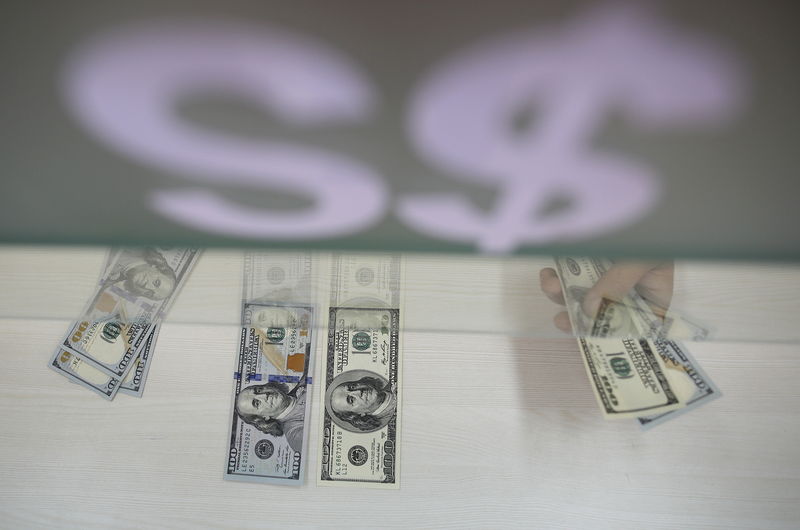US stock futures inch lower after Wall St marks fresh records on tech gains
(Bloomberg) -- When Pamplona Capital Management invested in Paraxel, a company that conducted clinical trials for developers of Covid-19 treatments, Russian money greased the purchase.
When the London-based private equity firm announced its decision to buy Danish tech distributor EET Group and U.S. garden-products company BFG Supply, Russian money was behind those deals, too.
Pamplona, which raised $11 billion for five private equity funds since its 2005 inception, has marketed itself as a manager for all kinds of investors, saying as recently as last year that it caters to “a variety of clients including public pension funds, international wealth managers, multinational corporations, family offices, and funds of hedge funds.”
But one client has stood out: LetterOne Holdings, the investment conglomerate co-founded by Mikhail Fridman, one of many Russian oligarchs sanctioned by the European Union last week following the invasion of Ukraine. Pamplona oversees almost $3 billion of LetterOne’s money, according to a LetterOne spokesman.
The sanctions are a reminder of how Russian wealth stretches far beyond Western trophy assets such as sports teams, superyachts and mansions. It helps to power the movement of food, technology and agricultural supplies. Efforts to untangle those interests from private equity investments will ripple across national economies for years to come.
Even though LetterOne is Pamplona’s biggest source of capital, the private equity firm announced Wednesday that it “has begun the process” of redeeming LetterOne’s partnership interests.
Read more: Pamplona Capital Says It Will Redeem LetterOne Investments
“While Pamplona has received clear guidance that LetterOne is not a sanctioned entity, the ongoing crisis in Ukraine makes such relationships increasingly challenging for our portfolio companies, their management teams, customers, employees, and counterparties throughout Europe and the rest of the world,” Pamplona said in a statement.
LetterOne said it’s disappointed by the decision.
“We sincerely wish to cooperate constructively with Pamplona and we will continue to focus on protecting the jobs our investments support while distributing the $150 million of aid we have pledged for relief for the victims of the war in Ukraine,” LetterOne said in an emailed statement.
As the sanctions began to bite and the influence of Russian money on the global economy came under greater scrutiny, Pamplona faced increasing pressure over its relationship with its most prominent backer. Lenders to the firm’s portfolio companies were reassessing those business relationships because of its ties to Russian capital, according to people familiar with the matter.
The influence of Russian money has far-reaching implications for investment firms and their backers, said MaameYaa Kwafo-Akoto, a partner at London law firm Allen & Overy.
“It is a concern for fund managers as capital that was guaranteed for portfolio investments is now out of reach,” she said. “Overnight, sanctioned lenders and investors are no longer an option.”
Read more: Cops Are Blocking Superyachts of Sanctioned Russian Billionaires
Fridman, 57, a native of Lviv, Ukraine, amassed a fortune by founding one of Russia’s largest private banks and collecting profits from energy ventures. In 2013, he set up Luxembourg-based LetterOne along with Petr Aven, 66, and other Russian associates to invest part of the $14 billion they took in from the sale of their stake in TNK-BP, a former state-owned company with interests in Siberian oilfields, to Rosneft Oil Co.
The two men, who stepped down from LetterOne last week and together own less than half of the firm, said the sanctions were based on false allegations and that they plan to contest them.
“These are malicious and deliberate lies -- pure and simple, the product of historical fantasies and conspiracy theories dreamt up by individuals with their own agendas,” they said in a statement.
LetterOne also said that none of its underlying investments are affected by sanctions.
Read more: Three More Billionaires Resign From LetterOne in Ukraine Fallout
Private equity firms typically secure commitments from multiple investors and then ask for the money when they’re ready to deploy it. Clients that default on those commitments can hamper an investment firm’s ability to do deals or provide financing to help their portfolio companies grow. Several large credit funds and investment banks had shunned investing and underwriting Pamplona’s deals because of its ties to Russian money, the people said.
Much of the debt carried by Pamplona’s portfolio companies is wrapped up in leveraged loans and private credit, both of which are hard to trade, especially during a crisis.
‘Unique Strength’
Pamplona’s Russian investors attracted scrutiny from Washington in recent years. In 2019, Pamplona sold cybersecurity company Cofense after the Committee on Foreign Investment in the United States pressured it to do so, citing national security risks associated with the amount of Pamplona’s foreign backing.
Pamplona was founded in 2005 by Alexander Knaster, the former chief executive officer of sanctioned Russian lender Alfa-Bank. Fridman is the co-founder and chairman of the bank’s parent, Alfa Group, one of Russia’s largest financial industrial conglomerates. His net worth has tumbled $4 billion this year to $9.9 billion, according to the Bloomberg Billionaires Index.
Over the years, he channeled more money to Pamplona through various investment entities. The firm’s executives, recognizing the risk of having one Russian-linked source wield so much influence, sought to raise more money to diversify its investor base, people said. Several employees have moved between Pamplona and LetterOne.
In 2012, Alfa Group said it had invested about $1.5 billion in Pamplona’s funds. Those investments eventually were rolled into LetterOne.
The investment firm has touted its Russian heritage as “a unique strength.”
“L1’s shareholders are used to, and comfortable with, very major changes and dislocations in their external environment,” LetterOne said in its 2015 annual report. “It is part of life for Russian investors. It is not so for Western investors.”
©2022 Bloomberg L.P.
